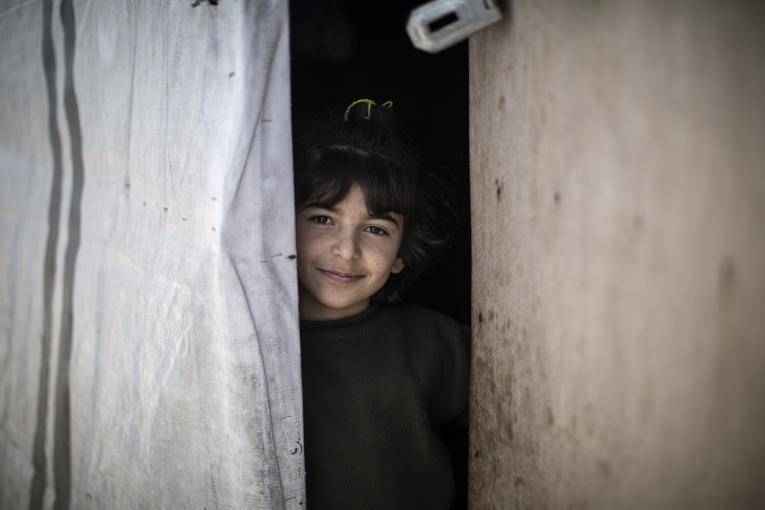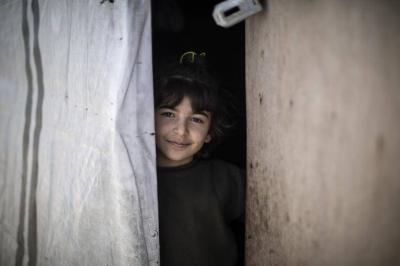The Times published a report by journalist Richard Spencer, highlighting the doubling of child labor in Lebanon amidst a financial and economic collapse due to "sectarian" conflicts over power sharing. As the economy and society in the country disintegrate, children fill the backstreet workshops in the Bekaa Valley, where most workers are minors.
Khalil, an 11-year-old Syrian, said, "My favorite subjects in school were mathematics and Arabic language, but I agree to come here now." Regarding his homeland, which he hardly remembers, he stated: "They told me it is beautiful." He and his 13-year-old brother Abbas work six days a week in a row of car repair shops, an hour's walk from the tent that has been their family's home for nine years.
Their mother, Fatima Hassan, told The Times, "Even before the crisis, we couldn't afford to send all our children to school." The cost of school transport and supplies was too high. "At least now they are learning something."
The initial figures regarding the economic crisis in Lebanon over the past two years are shocking and nearly incomprehensible. The value of the Lebanese lira has collapsed by 95% since the government defaulted on its debts in March of last year. The inflation rate reached 170%, with food prices soaring over 400% since late 2019.
On the ground, this means that the minimum wage, which has not changed at 675,000 Lebanese lira, has decreased in real terms from $450 per month to $25. It is no surprise that not only Syrian refugees but also Lebanese people employ children for paid jobs.
These children ultimately have a better understanding of statistics than most adults elsewhere, as noted by Olivier De Schutter, the UN Special Rapporteur on Extreme Poverty, during a visit last month. His report stated: "Children know the dollar rates, the economic crisis, and the rise in food and medicine prices, topics they should not be concerned about until much later in life."
The number of working children has doubled in 18 months to about one in ten, according to a recent survey by "Protect," a local independent group that sponsored an awareness campaign with Plan International, a charity focused on family protection. Even that campaign did not go so far as to call for an end to this practice, admitting it has been a lifeline for many parents.
The UN stated that in the Bekaa, Lebanon's main agricultural home and the site of most unofficial Syrian refugee camps, the majority of workers are children. Ibrahim Khalil, 48, from Raqqa in Syria, said: "I send my children to work in the fields when they reach 13 years old,” although many of his potato-harvesting children appeared younger than that. They earn half a dollar a day—minimum wage does not apply to children—but among themselves, they can contribute to the family's meager income. None of his eight children have gone to school.
The low cost of child labor is certainly an attraction for employers. Even trainee mechanics earn 40,000 Lebanese lira weekly, which is less than two dollars at the current exchange rate.
Hussein Habib, Khalil's workshop owner, expressed sentiments heard worldwide. He said, "Local Lebanese men don’t want to dirty their hands... so I hire Syrians instead." He added that it would be better not to employ children. All Lebanese would agree in principle, but the law requires adult Syrians, even refugees, to acquire costly and hard-to-obtain work permits under the threat of arrest, which encourages hiring children instead.
The pandemic closed schools for over a year, and while many Lebanese were provided with homeschooling, it is difficult to arrange for refugees who lack laptops and live in tents. About 80% of Lebanese, more than the Syrians, now live in poverty, according to definitions by the World Bank.
De Schutter stated that 77% of families reported they "do not have enough food or money to buy food." A small segment of society—the old elite class, along with those with relatives working abroad—have access to hard currency. With the collapse of the Lebanese lira, a bill in dollars has turned into wealth, representing a ten-dollar weekly wage for an adult.
A girl can earn in five minutes outside a trendy café in Beirut or in the second city of Tripoli more than her father makes driving a taxi all day. Yusra, a nine-year-old in Tripoli, with two years of experience selling tissues and gum on the street alongside her eight-year-old sister Sidra, estimates she earns 80,000 Lebanese lira a day, which is three times what their father, Hassan Jabban, could earn at minimum wage.
The price is regular violence—beating, kicking, and spitting from local residents who have not welcomed the arrival of a million Syrian refugees. Yusra said, "People call me dirty names." Her sister remained silent, still recovering from a violent attack in the city market.
The hardest part to understand about the magnitude of the crisis in Lebanon is how to end it. Lebanon had high hopes for the formation of a new government. But due to obscure sectarian disputes over power sharing, a review of the central bank's accounts, the judicial investigation into last year's Beirut port explosion, and Hezbollah's role, the government has failed to convene for two months.
The Lebanese Protection Association states that a whole generation is losing its childhood. Yusra said, "I just want to live a normal life." But there are few indications she will get that.




